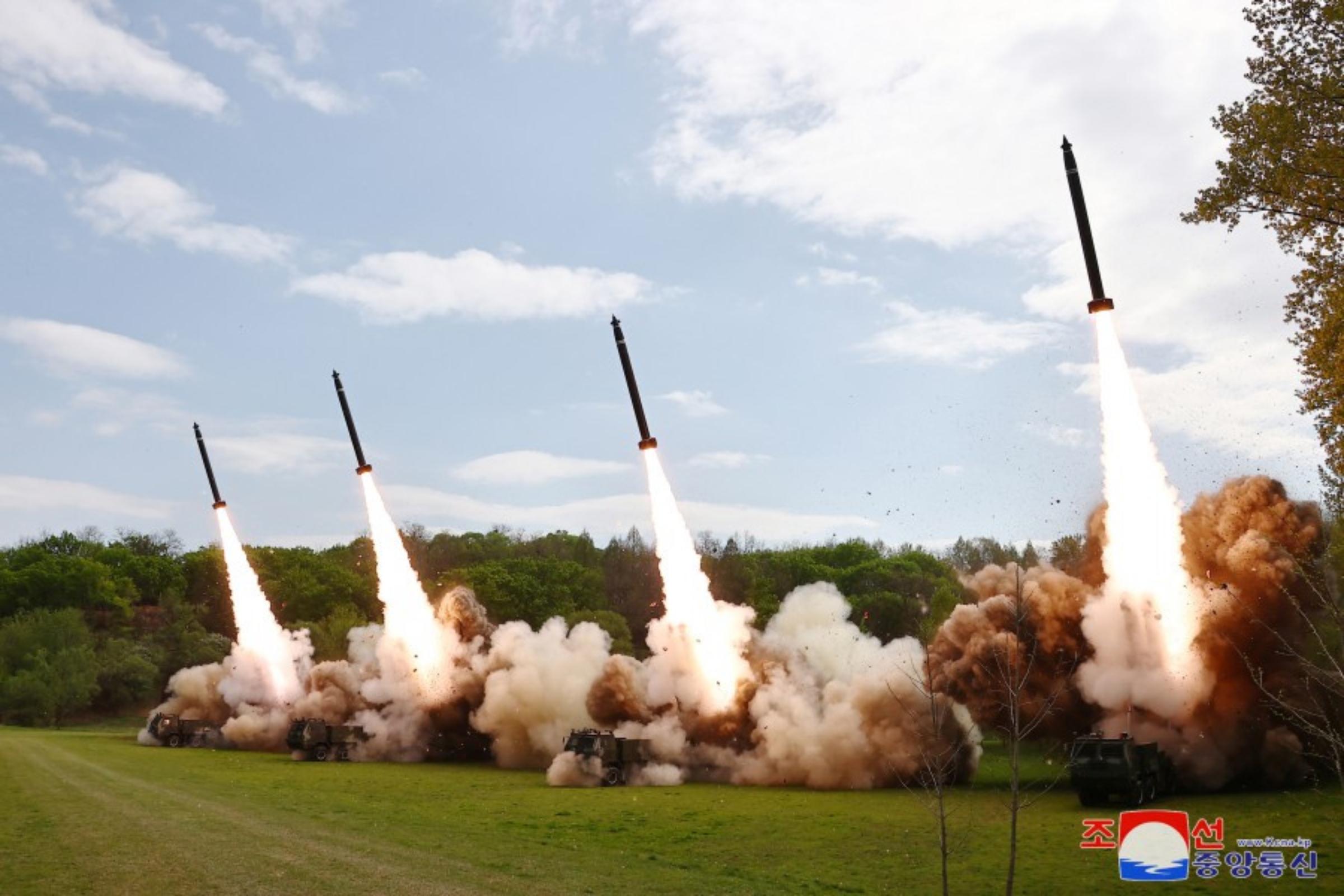This article first appeared on the Just Security site.
For the better part of two decades, American policymakers have struggled to explain the nature of the terrorist threat facing the United States.
Mayors, governors, and members of Congress have confronted this challenge, but it falls most squarely on the Commander-in-Chief to stress vigilance while offering reassurance, a balance that has tripped up more than one U.S. president.
President George W. Bush, for example, was roundly criticized after telling Americans in the aftermath of 9/11 they should "get down to Disney World."
This is the same President Bush who, on the eve of the Iraq war less than two years later, warned that terrorists were plotting to kill hundreds of thousands of Americans.
President Barack Obama, despite publicly embracing some of his predecessor's more controversial tactics, found himself on the receiving end of criticism when it was reported that he privately—if accurately—reminded staff some five years after the death of Osama bin Laden that more Americans die from bathtub falls than in terrorist attacks.
With President Donald Trump, the pendulum has swung into the opposite stratosphere, best demonstrated by his scurrilous Twitter attacks against the London mayor for allegedly downplaying the threat.

Beyond President Trump, others in his administration have towed a similar line, with, for instance, Homeland Security Secretary John Kelly telling a Fox News host that Americans would "never leave the house" if they knew what he knew.
Why, then, is it so challenging to strike the right balance—communicating an appreciation for the threat while still injecting perspective regarding its magnitude?
As with all hot-button issues in Washington, politics explains much of the answer, but we also must acknowledge a structural challenge within the government bureaucracy that renders threat assessments something less than unvarnished.
When it comes to the politics, American policymakers since 9/11 have confronted an undeniable reality: The next attack is a question of when, not if. In the months and first few years after the 2001 attacks, the going assumption was that the next wave could well be on the same scale—a spectacular operation inflicting thousands of deaths on U.S. soil.
The Bush administration, often invoking its color-coded warning system, sensitized Americans to these concerns, in part to instill a sense of resilience but also as a preemptive 'CYA' strategy. None of these nightmares came to fruition, of course, but—as I saw up-close as a CIA terrorism analyst at the time—it wasn't for the terrorists' lack of trying.
In more recent years, the odds of another spectacular attack on par with 9/11 have diminished significantly, just as smaller-scale operations have become more frequent. That different threat picture required a more nuanced message from the Obama administration.
It was no easy feat to communicate to the American people the fact that al Qaeda core, the group responsible for the 9/11 attacks, had been decimated, while horrific attacks continued to spread to places like London, Paris, Brussels as well as closer to home, including Orlando and San Bernardino.
Senior policymakers face another challenge, however: Intelligence professionals closest to the issue may not always be dispassionate analysts. The odds are good that if a policymaker is briefed on a terrorist group by the senior analyst assigned to it, the briefing will accentuate the group's capabilities and fail to put them in perspective vis-a-vis other national security threats.
Indeed, intelligence analysts, almost by necessity, tend to be very deep in their knowledge of the topic they cover, while lacking breadth beyond that typically narrow issue.
More often than not, only quite senior intelligence officials have the requisite perspective to compare and contrast relative threats, providing input regarding how scarce resources—funds, personnel, and surveillance assets, for example—should be allocated.
Even at these senior levels, however, there's another rub: Institutional biases tend to distort the magnitude of the threat. Within the intelligence community, the offices assigned to specific terrorist groups have an incentive to overstate their capabilities.
Offices monitoring especially capable groups with an intent to target U.S. interests find themselves with more senior-level attention and, consequently, resources. Those assigned to groups on the wane, on the other hand, can find their personnel and funds redistributed to other components.
In my experience at the CIA, I never found that my work was politicized in the traditional sense, but it was subject to something almost as troubling: bureaucratization.
Indeed, managers consistently weighed in to ensure assessments for policymakers did not speak of diminished or reduced threats so as not to risk a cut in resources. Instead, senior officials preferred that we spoke of a more "diversified" or "diffuse" threat picture.
Even in the face of significant setbacks to a group, the clear institutional preference was to highlight the possibility that the terrorists would attempt to demonstrate continued vitality by lashing out, including potentially against U.S. interests.
This dynamic not only distorts the allocation of precious resources within the national security establishment but also renders policymakers, including the president, less capable of providing the American people with an unvarnished assessment of the terrorist threat.
With the politics inherently difficult, and intelligence analysts finding a thorn on every rose, policymakers have an incentive to speak more to required vigilance than enhanced safety and security.
A seasoned administration—as the Bush and Obama administrations were in their second terms—has the potential to build a more honed sense for this dynamic by asking the right questions to identify biases and adjust accordingly.
When it comes to the Trump administration, however, this team features personalities who have never worked in government or, in other cases, not since the 9/11 attacks.
Compounding the issue, many within the current administration appear inclined to overstate the threat we face. Within the first days of the administration, for instance, the White House released a list of 78 terrorist attacks that, in its estimation, had received inadequate media coverage. Among them were the assaults in Paris, Brussels, and Orlando, each of which had garnered wall-to-wall coverage for days.
The President's senior counselor, moreover, repeatedly cited the "Bowling Green Massacre," a phantom attack that never occurred whose only victim was her credibility.
More recently, the President's one-sided Twitter spat with the London mayor suggests his first months in office have not equipped him with any more perspective.
The result is that neither this administration nor, by extension, the American people is likely to appreciate the true nature of the threat we face.
Unless and until we do, our efforts to counter it will lack appropriate focus and, worst of all, effectiveness.
Ned Price served as a Special Assistant to President Obama on the National Security Council staff, where he also was the Spokesperson and Senior Director for Strategic Communications.
Uncommon Knowledge
Newsweek is committed to challenging conventional wisdom and finding connections in the search for common ground.
Newsweek is committed to challenging conventional wisdom and finding connections in the search for common ground.
About the writer
To read how Newsweek uses AI as a newsroom tool, Click here.








